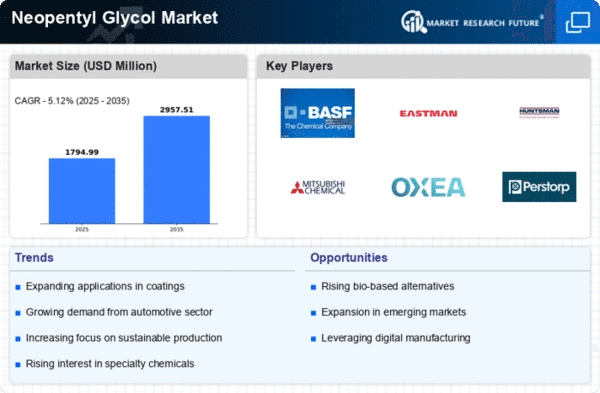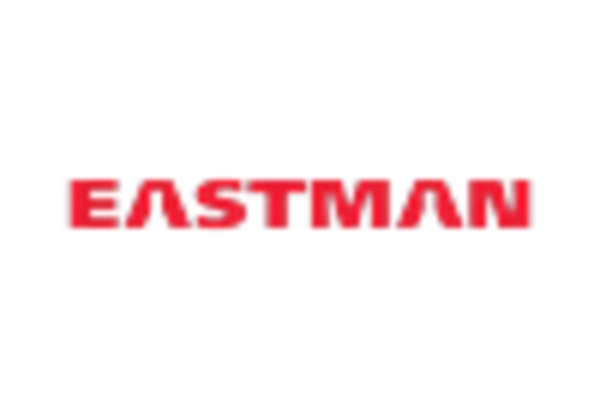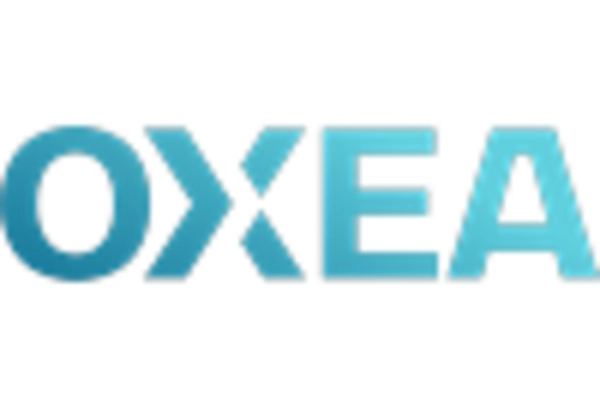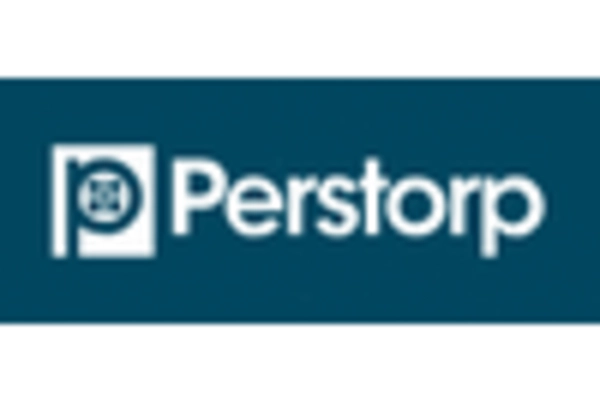Market Trends
Key Emerging Trends in the Neopentyl Glycol Market
The Neopentyl Glycol (NPG) market has been witnessing noteworthy trends that are shaping its trajectory in recent times. NPG, a key building block in the production of various polymers, coatings, and resins, is gaining prominence due to its exceptional properties and versatile applications. One notable trend is the increasing demand for eco-friendly and sustainable products across industries. With a growing emphasis on environmental consciousness, manufacturers are opting for NPG as it aligns with the need for greener alternatives. The compound's low toxicity and minimal impact on the environment make it an attractive choice for companies aiming to reduce their carbon footprint.
Another significant trend in the Neopentyl Glycol market is the expanding scope of applications. Traditionally known for its use in the production of polyester resins, NPG is finding new avenues in industries such as automotive, construction, and textiles. The compound's ability to enhance the durability and performance of various materials has led to its adoption in the manufacturing of high-quality paints, adhesives, and lubricants. This diversification of applications is driving market growth, as NPG proves its versatility and reliability across different sectors.
Furthermore, the Neopentyl Glycol market is experiencing geographical shifts in terms of production and consumption. As global industries continue to evolve, there is a notable shift in manufacturing hubs, with emerging economies playing a pivotal role. Countries in Asia, particularly China and India, are witnessing a surge in demand for NPG, driven by the rapid growth of their industrial sectors. This shift is reshaping the dynamics of the market, with an increasing focus on Asia as a key player in the global NPG landscape.
Technological advancements also contribute to the market trends of Neopentyl Glycol. Continuous research and development activities are leading to innovations in production processes, resulting in cost-effective and more efficient methods. These advancements not only benefit manufacturers in terms of operational efficiency but also contribute to the overall growth and sustainability of the Neopentyl Glycol market. As technology continues to play a crucial role in the chemical industry, the NPG market is expected to witness further improvements in production methodologies and product quality.
The Neopentyl Glycol market is not without challenges, and one noteworthy trend is the fluctuation in raw material prices. As NPG is derived from petrochemical sources, its production costs are directly influenced by the volatility of oil prices. The market is, therefore, subject to price fluctuations, impacting the overall profitability of manufacturers. Companies in the NPG sector are increasingly adopting strategies to mitigate the impact of raw material price volatility, such as long-term contracts and exploring alternative, more stable sources.



















Leave a Comment